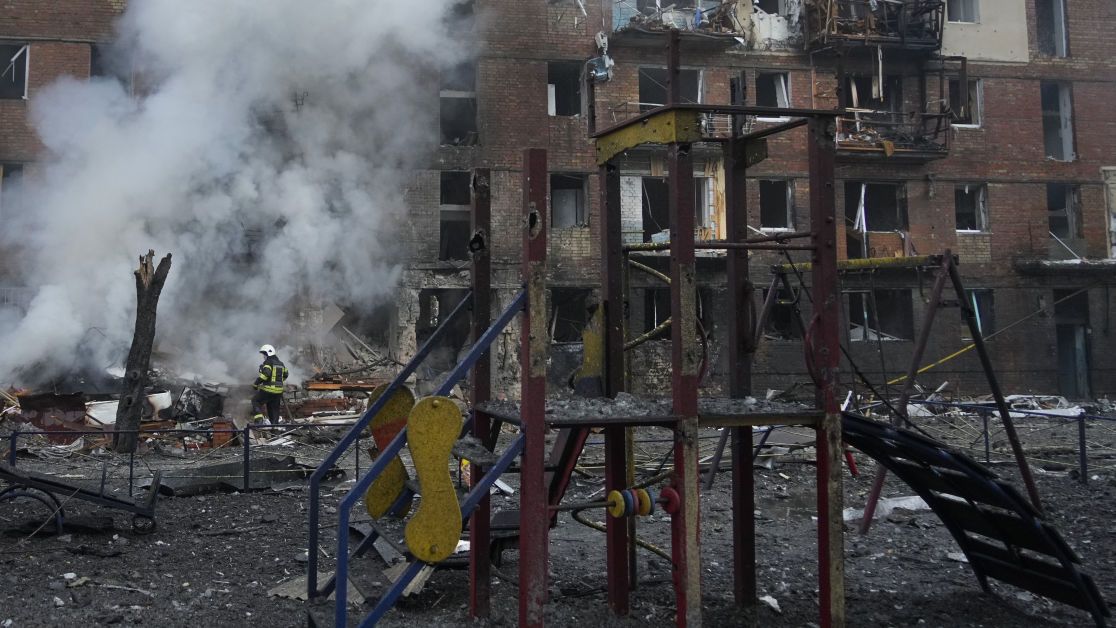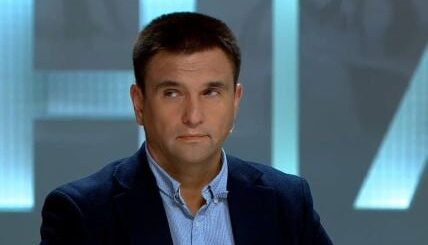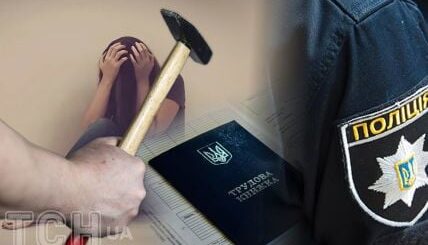The Real Reason Why Russia is Waging a War on Ukraine
In essence, Russian history is steeped in the colonization of neighboring European and Asian countries, a narrative often glorified in Russian literature. This narrative, passed down through generations, ingrains the belief that Russians are inherently superior to those they conquer, a notion absorbed almost instinctively from infancy.
This cultural narrative has never undergone an anti-colonial reevaluation, which contributes to the inability of the Russian “liberal opposition” to comprehend or see the necessity for such a reassessment.
This context helps explain the widespread support among the Russian population for the war against Ukraine, as indicated by the findings of the Levada Analytical Center.
Despite efforts, the West struggles to grasp the true essence of Russia, often conflating it with the carefully constructed image Russia has cultivated over centuries. Similarly, there is often a lack of understanding regarding Ukraine. Here are some key points to distinguish between the two.

1. Ukraine has always fought for its independence
Throughout its history, Ukraine has steadfastly fought for its independence. The journey toward autonomy began in the 17th century with the Pereiaslav Treaty, which temporarily aligned Ukraine with Muscovy as a strategic move by Hetman Bohdan Khmelnitsky against the Polish-Lithuanian Commonwealth. However, the Ukrainian people’s aspirations for autonomy and rights led to ongoing conflicts with the Polish state.
Although the treaty initially granted Ukraine wider autonomy, subsequent events, including Hetman Mazepa’s alliance with Sweden in the Great Northern War, resulted in Russia’s complete absorption of Ukraine by 1709. This marked the start of a systematic dismantling of Ukraine’s autonomy.
In the 19th century, as Central European nations, including Ukrainians, embraced national revival, Russia implemented policies suppressing the Ukrainian language. Despite these efforts, Ukrainian literature and language continued to develop, showcasing the resilience of the Ukrainian people against their colonizers.
Taras Shevchenko, a prominent Ukrainian poet, faced persecution and exile by Russian authorities for his contributions to Ukrainian culture. Despite such crackdowns, Ukrainian literature flourished, reflecting a long and arduous battle against colonization.
Unlike European colonies, Ukraine and Russia shared physical characteristics and religious beliefs, making the Ukrainian struggle less recognized as anti-colonial by the West. Nonetheless, Ukraine’s fight for national identity and language persisted, sparking revolts against serfdom and culminating in the 1918 proclamation of the Ukrainian People’s Republic (UPR).
The UPR faced opposition from various factions, including the Bolsheviks and the Poles, leading to its eventual fall. The establishment of the Ukrainian Soviet Socialist Republic under Soviet rule led to further challenges, including the man-made famine that claimed millions of Ukrainian lives and the execution of cultural figures.
Despite these hardships, a movement for Ukraine’s independence emerged, which was met with continued repression. The dissident movement of the 1960s, known as “the Sixtiers,” openly opposed Soviet colonial policies, risking imprisonment for their views.
Ukraine’s struggle against Russian colonialism, often overlooked by the West, is rooted in its history and ongoing efforts to assert its identity. While Russia seeks to appropriate the name “Kyivan Rus” to frame its history, Ukraine sees itself as the true heir to this legacy. This distinction, as explained by historian Timothy Snyder, highlights Ukraine’s historical ties to Kyivan Rus and its resistance to Russian domination.

2. Contempt for non-Russians in the USSR
During the Soviet era, alongside the rhetoric of international friendship, a prevalent theme in Soviet popular culture was the mockery of non-Russian citizens of the USSR, often portraying them as foolish or backward.
Jokes circulating at the time targeted various nationalities within the USSR, excluding the Russians, often referred to as “the elder brother.” For instance, Moldovans were depicted as needing five people to change a light bulb, Chukchi people were said to drive in reverse gear, and Caucasus peoples were portrayed as engaging in sexual deviancy, all in a caricatured manner. There were also jokes highlighting Russian superiority over “noble” nations like the French or Americans, with the Russians always emerging victorious.
Ukrainians, in particular, experienced Russian disdain, a hallmark of a colonizer’s mindset. Ukrainians were often belittled for their language, with remarks suggesting it was more suited for a pigsty than a classroom. This attitude was prevalent even among teachers in Ukrainian schools, who risked repercussions for deviating from official policies, as Soviet repression affected many families.
While there were no explicit directives in communist policies to ridicule languages other than Russian, it was a common practice in schools across the USSR. Most Russian language teachers were ethnic Russians and often exhibited a colonial attitude, receiving higher salaries than teachers of national languages.
Reflecting on this contemptuous mindset, Russian journalist Leonid Parfyonov shared a personal anecdote from his university days. He learned Bulgarian to communicate with students from Bulgaria, only to be reported to authorities by fellow Russians for supposedly supporting Bulgarian nationalism. This incident underscores the expectation that non-Russians should speak Russian, highlighting the imperialistic attitudes prevailing among Russians.
Despite criticisms of the Kremlin regime, Russian liberals and opposition members often maintain a colonial perspective towards Ukrainians and other neighbors. They rarely question the existence of the Russian empire or support the rights of occupied peoples to revive their national cultures or self-governance.
Even prominent figures like Solzhenitsyn, a critic of the communist regime, praised aspects of the Russian empire, while opposition leader Navalny supported the Russian occupation of Crimea. These examples illustrate how, despite differing views on the Kremlin, many Russians continue to exhibit imperialistic attitudes toward their neighbors from former Soviet countries.

3. Classic Russian books justify colonialism
The West often turns to classic Russian literature for insights into Russian culture. While Western readers admire the depth of character in these works, a closer examination reveals two distinct trends: first, the glorification of Russian imperial conquests and the denigration of colonized peoples, and second, the absence of criticism toward authorities, with their actions always supported regardless of the atrocities committed.
Ewa M. Thompson’s book “Imperial Knowledge: Russian Literature and Colonialism” eloquently dissects these trends. She writes, “From his early poem ‘The Prisoner of the Caucasus’ to the mature ‘Journey to Arzrum during the 1829 Campaign,’ Pushkin set out to create a mute and intellectually deficient Caucasus, recklessly brave in its pointless struggle and ripe for Russian governance. Pushkin and Lermontov manufactured for the Russian textual memory the image of Russia as a stern but just mistress of the area.”
Pushkin’s own words on the conquest of the Caucasus exemplify this viewpoint:
“And then I shall celebrate the glorious time
when our two-headed eagle
scenting bloody combat,
rose up high against the disaffected Caucasus…
Hushed now are the furious shouts of war:
all is in subjection to Russian arms.
The proud sons of the Caucasus fought on,
They suffered dreadful losses;
but nothing could save them —
not the carnage they inflicted on us,
not their fabled weaponry,
not their mountains, nor their spirited horses,
not their devotion to an untamed freedom”.
“The Prisoner of the Caucasus”
Russian literature, shaped by strict censorship under both Tsarist and Soviet regimes, often portrays a negative image of Ukraine and other minority cultures. This unchallenged narrative continues to foster a sense of superiority among Russians over their colonized subjects.
Even acclaimed poets like Joseph Brodsky, a United States Poet Laureate, did not shy away from disparaging Ukrainians in his work. His poem “On the Independence of Ukraine” includes lines like, “It’s over now. Now hurry back to your huts / To be gang-banged by Krauts and Polacks. / It’s been fun hanging together from the same gallows loop, / But when you’re alone, you can eat all that sweet beetroot soup.”
These examples underscore a pervasive theme in Russian literature that perpetuates a narrative of superiority over subjugated peoples.
4. False internationalism in the USSR
Here are some quotes from an opinion piece by Botakoz Kassymbekova, Assistant Professor of Modern History at the University of Basel, of Kazakh descent:
“Many in Western academia bought into Moscow’s anti-colonial narrative because they believed in communist anti-imperialism. However, they overlooked Stalin’s obsession with maintaining Russian imperial borders and his use of ethnic cleansing, crushing dissent, and privileging Russian ethnicity and culture.”
“Western knowledge about the Soviet Union was Russocentric, often referring to it simply as Russia. This led to a lack of understanding about Soviet peripheries, resulting in ignorance about uprisings and conflicts in Central Asia, the Caucasus, the Baltics, and other regions.”
“The wave of decolonization after World War II prompted rigorous academic discussions about colonial legacies and violence. In contrast, the dissolution of the Soviet Union in 1991 did not lead to similar scrutiny of the Russian imperial legacy.”
“In Russia, the dominant narrative was one of victimhood, perpetuating the myth of the Soviet Union as an internationalist experiment that simply expired.”
“To understand Russia, one must listen to those who lived under Russian colonial rule and study their cultures, languages, and histories. The successful transformations of states like Ukraine offer insights into overcoming colonial dictatorships and debunking the myth of the ‘artificial nation.'”
These quotes emphasize the need to reevaluate Western perspectives on the Soviet Union and understand the complexities of Russian colonialism and its impact on former Soviet republics.
What we can do?
It was only through military defeats and economic collapse that certain members of the Russian cultural elite were prompted to reassess their history, yet these effects were short-lived. The failed attempt to participate in World War I sparked a revolution in Russia, leading to the abdication of the tsar and the appointment of the Kerensky government. However, less than a year later, democracy gave way to a new dictatorship — the USSR.
The fear of economic collapse compelled the USSR to attempt reforms, resulting in a flood of publications in Moscow-based media exposing the crimes of the Soviet regime.
These events ultimately paved the way for Putin’s dictatorship, which continues to enjoy unwavering support from the Russian people after his 23 years in power. Despite growing societal criticism following the collapse of the Soviet Union, particularly after the Afghanistan debacle, this criticism eventually gave way to a return to familiar belligerence and contempt toward conquered nations, as seen in films like “Brother 2.”
The only Russia that does not pose a threat to the world, the article argues, is one that has dissolved into smaller states, akin to the British Empire’s transformation. Just as two English-speaking countries peacefully coexist in North America, a similar scenario could unfold in Eurasia, where Russian-speaking countries coexist alongside autonomous regions. This would allow these nations to live more prosperously without the need to confront the entire world.
The article highlights the differences between Russians living in Siberia and those in European Russia, noting that smaller sovereign states would enable Russians to thrive without the burden of imperialist ambitions. Countries in the Asian part of Russia, wary of Chinese expansion and the communist regime in China, may align themselves with the USA, Europe, and Japan, fostering a more democratic environment.
With the dissolution of the last empire, imperialist ambitions would diminish, opening doors for investments and technological advancements. This, in turn, would create lucrative business opportunities for Western companies and allow formerly enslaved peoples to revive their cultures and languages.
While Western politicians are concerned about the risks of Russian nuclear weapons falling into the hands of terrorists, the article suggests that the collapse of the USSR did not result in such a scenario. Ukraine even agreed to complete denuclearization. To mitigate these risks, Western governments should prepare for the potential collapse of Russia by developing multiple scenarios to prevent terrorist access to Russian nuclear weapons.



